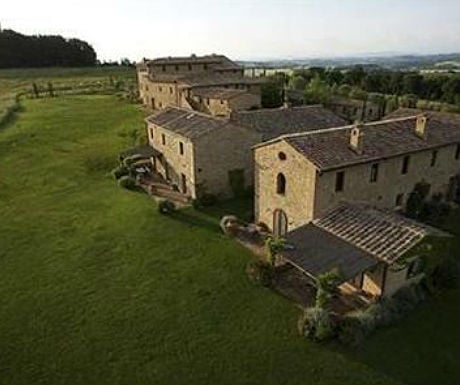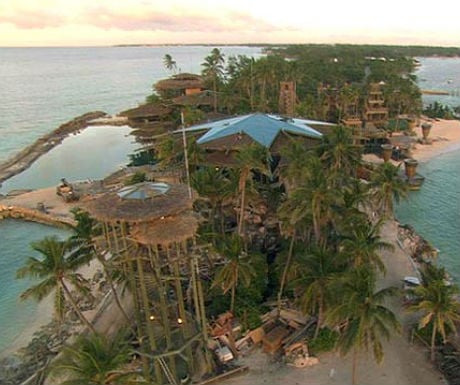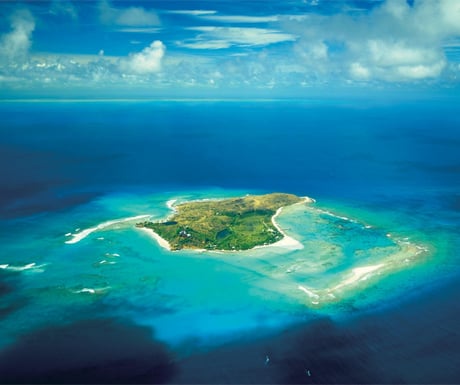If scammers disguised themselves as your bank's fraud protection team, would you fall for it?
By Andy Welch

A credit card. Photo: Getty
"Hello Mr Welch. Visa Card Services here." That was the line with
which my nightmare started one Sunday morning, hungover, sitting on the
sofa trying to piece together the night before. The landline rang. I was
surprised because I’d only given the number to about three people.
The person on the other end of the phone – Mark – told me there had
been a number of fraudulent transactions on my bank account since
midnight, adding up to about £1,100. I’d never heard of Visa Card
Services before, but then I’d never had money stolen like this before.
Maybe this is what happens?
He then confirmed the last genuine withdrawal I’d made – at the
Barclays opposite Highbury & Islington station – gave me a reference
number and told me to ring the number on the back of my bank card.
I did just that, quoted the reference number and spoke to someone who
knew all about the supposed fraud. These cunning tricksters had
apparently cloned my card at the ATM I’d used and then treated
themselves to a few things in the Apple Store on Regent Street.
Something didn’t ring true about the whole thing – why would someone
with a stolen bank card only spend £400 in the Apple Store, for
starters? But I watch enough bullshit consumer TV, the kind of thing
presented by that estuary gargoyle Dominic Littlewood, to know that
these things happen.
The person now helping me, Rajesh Khan in HSBC’s card protection
department, had all my details; full name, date of birth and, crucially,
my address. That was the clincher for me, and when he said a courier
was on the way to collect my bank card for further examination, I didn’t
need to tell him where I lived. I initially flinched at the idea, but
when he explained it was needed to properly analyse the chip, it seemed
to make sense. After all, I’d called the bank myself, this was no cold
call, and he had all my details already. That’s probably the same reason
I typed my PIN number into the keypad of my phone.
“It’s OK, Mr Welch, we can’t see it, but we need to perform a PIN
block." “I’ve never heard of that," I said, “but fair enough." I
packaged the card up as requested – wrapped up snugly in kitchen roll,
packed into an envelope so it didn’t look like a bank card – and waited
for the courier to arrive. Rajesh called back twice, once to say the car
was five minutes away, and again to say it was outside, quoting the
car’s number plate and describing the driver.
My mate Rajesh called again later that afternoon to say they’d
received the card and that I’d have my money back in a few days.
“Great," I thought. I recall saying to one of my housemates how
difficult it was to like banks, what with them ruining the world and
everything, but you couldn’t argue with efficiency like this. So sucked
in to the efficiency, I went through exactly the same process the
following day with my credit card. The same fraudsters had somehow
hacked into my online account, got my credit card details and maxed it
out. Good old Rajesh told me this time there was a shred of hope the
criminals would be arrested as they’d made the mistake of buying
Eurostar tickets to Paris on a specific train. The police would be
waiting for them at St Pancras. Amazing news!
A few days went by and Rajesh stopped calling. Worried – by this
point I was, to my estimations, about £4,000 out of pocket – I called
the bank, this time from my mobile. After explaining the situation to
two or three people, my nightmare stepped up a notch with the most
chilling phrase of all. “But Mr Welch, your cards haven’t been reported
stolen."
I’ve never been speechless before. I’ve never been able to feel the
colour drain from my face either, but I was and I could. It ran from me
like water down an open drain, replaced by all-consuming feelings of
stupidity, anger and fear. Quite the cocktail. Realisations kept hitting
me as I relayed the conversations, over and over and over. Why had I
given my card to a stranger? Why had I typed my PIN into the phone? How
did they know my mother’s maiden name? How did they have my address?
And, most of all, why in the name of all things holy hadn’t I checked my
balance to see for myself what the damage was before I even called the
bank that Sunday morning?
Well, to answer the last question first, I suppose I didn’t want to
see what was happening. When I did check, things were far worse than I’d
expected, and my rent had bounced to cap it all off nicely. The Apple
Store story was all a lie – they’d in fact spent thousands in clothes
shops, some really shitty clothes shops, and best of all, treated
themselves to a Dixie Fried Chicken each evening. Forget the fraud –
what kind of savage spends £95 over three days in a Kentish Town
takeaway?
The rest of it comes down to good faith. Once you call the number on
the back of a bank card and go through security stages, you enter into a
world of trust, where you’re no longer the boss and the person on the
other end takes over. “My National Insurance number? Sure, stranger I’ve
never spoken to before, here you go…" By now, I was really panicking.
Most of the money, I must add, was credit or overdraft. What if I didn’t
get a refund? That was a possibility, according to the security expert
at the bank. It would take me years to pay off debt like this.
I called the police, who put me on to their dedicated fraud line.
After explaining my idiocy once again – it’s pretty humbling, repeatedly
telling people you’re the type of person that gives both your bank card
and PIN to the first person that asks for them – they went through the
likely series of events that led to this theft. By now the total was
about £5,500, and even though, unofficially, the police told me the
banks always refund the first-time defrauded, I was a bit of a wreck. It
all started, said the police, on the Saturday night where one of this
gang will have watched me take money from the cash point. That’s details
of my last transaction taken care of. Sinister enough, the thought of
being spied on while you’re trying to enjoy yourself at a Norton Records
garage night at the Buffalo Bar, but not the worst of it. The police
then believe I was followed home, which is how they got my address. It
could be worse, they could’ve just stabbed me, so every cloud and all
that, but followed home? Christ.
As for the call, well, credit where it’s due, it’s pretty clever. If
you call a landline, it’s up to you to end the call. If the other
person, the person who receives the call, puts down the receiver, it
doesn’t hang up the call, meaning that when I went to find my bank card,
the fraudster was still on the other end, waiting for me to pick up the
phone and call ‘the bank’. As I did this, he first played a dial tone
down the line, and then a ring tone, making me think it was a normal
call. He will have been sitting next to the first person that called me,
no doubt laughing their heads off at how stupid I’d been. Well, Mark
and Rajesh, I hope you’re happy with your lives. To Hades with you.
I was right to praise the bank’s efficiency, though. They got me all
my money back within 10 days, although I did have to get new bank
accounts and cards. It was a pretty lean spell, and by the time I got my
money back, I’d spent my last 60p on a tin of beans. My family and
friends offered money, but two things; I didn’t have a bank account for
them to pay money into, and with cash, well, there was a chance I had
the sharp end of six grand to pay back, I didn’t need to owe out another
£50 on top of that. The feeling of total financial ruin, of utter
helplessness, isn’t one I’ll forget in a hurry. If I momentarily forgot
what was happening, I’d remember and then start panicking all over
again.
Setting up all new direct debits was an unholy pain in the arse and,
five months on, problems are still arising and my credit rating has
taken a serious knock, while getting the various bank departments to
talk to one another and not try to charge me a few hundred quid in
overdraft charges was no picnic either. I’ve since had to sign up to a
number of other bank schemes and government services to add further
layers of protection. I get a monthly statement of credit checks in my
name, for example, so I know if these people are using the information
they have on me again. It took a few weeks to stop worrying about the
same people coming back to my house, too, although spending hours online
researching the link between bank fraud and violent crime – virtually
non-existent, it would seem – helped with that. If I’m wrong about that,
I don’t want to know otherwise.
Out of everything, accepting that it had happened probably took the
longest. I’m still coming to terms with it now, I think, but being a bit
more suspicious isn’t a bad thing. Being paranoid, well, hopefully
that’ll just wear off in time. I like to think I’m a tech savvy,
culturally aware person. I read about internet security, I know about
phishing and all that seemingly tedious shit we’re told about every five
minutes, yet the knowledge left me when it counted and I handed over
all my money like some wet-behind-the-ears yokel buying magic beans at a
county fair. I’m surprised I didn’t offer to help them spend the cash
as well, get the job done properly, like.
Bank fraud is a bigger problem than I had ever realised. Experts
suggest one in four of us will be directly affected by bank fraud at one
point or another, while millions and millions of pounds is pumped into
funding departments such as the ones that sorted out my problem and
insurance it took to cover the money stolen. That’s our money, paid in
extortionate overdraft arrangement fees in order to finance the whole
industry.
Financial fraud is often deemed a victimless crime because,
ultimately, it’s only huge companies footing the bill, not individuals.
Having suffered myself, the stress, upset and countless hours spent
sorting it out tell me it’s anything but.
 Aizawl, Jul 31 : Mizoram government has decided to elevate ongoing talks with Hmar People's Convention (Democrats) from joint secretary level to secretary level, an official statement today said.
Aizawl, Jul 31 : Mizoram government has decided to elevate ongoing talks with Hmar People's Convention (Democrats) from joint secretary level to secretary level, an official statement today said.
















